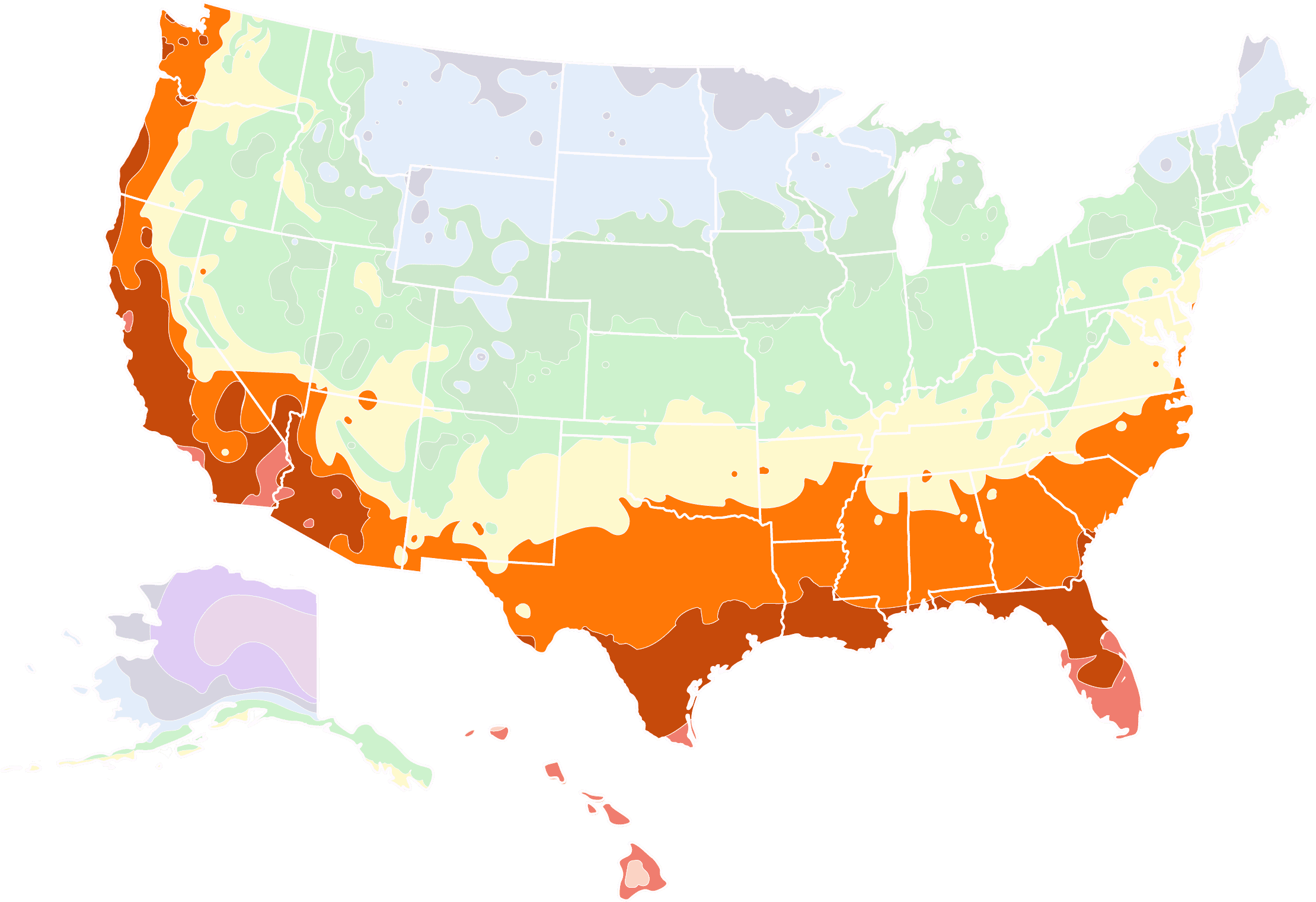Double Blooming Gardenia Tree for Sale - Buying & Growing Guide
The double blooming gardenia tree, Gardenia jasminoides, is a must-have for the patio or cottage garden. It is an attractive, evergreen tree that grows to a height of 5 to 7 feet, meaning it stays small enough to fit even in petite gardens. The elegant silhouette of the tree allows it to be a focal point, but what really makes the double blooming gardenia tree stand out is its long-lasting, heavily fragrant white flowers, which put on a show that can last for most of the summer. Although it looks high-maintenance, the double blooming gardenia tree is not hard to grow, and it adapts well to containers for those in northern regions. Here are a few more reasons to consider one for your garden:
- Glossy dark green leaves stay on the tree year-round.
- Symmetrical form makes it an excellent option to frame a front doorway or gate.
- Tree re-blooms throughout the summer when spent flowers are deadheaded.
Enter your zip code to find nearby stores that may carry this plant.
Plant Care
Sunlight

Gardenia trees need at least four hours of direct sun a day, but they can handle up to eight or more.
Watering
Water trees weekly, or whenever the soil 2 inches below the surface is dry.
Fertilizing

Fertilize throughout the growing season with a fertilizer that is higher in nitrogen, such as a 30-10-10 formula.
Planting and Care
Planting instructions
If planting in your garden, site your double blooming gardenia tree in a spot where it will get four to eight hours of direct sun a day, in well-draining, acidic soil. Unpot your gardenia tree and tease out any encircling roots, which can girdle the tree and kill it. Dig a hole that is as deep as the root ball and twice as wide. Loosen the soil in the bottom of the hole and place the tree in the hole. Holding it steady, fill in around it with soil, tamping down as you go to eliminate air pockets. Water thoroughly. Add a layer of an organic mulch, such as bark chips, around the root zone to help conserve moisture, being careful to keep the mulch from direct contact with the trunk.
Watering and nutrients
Gardenia Trees like moist soil, so water your tree weekly unless you receive rainfall. In very hot weather, you may need to water every day. Container-grown trees should also be monitored carefully and watered every few days. Make sure the water is able to drain down through the soil and out of the pot, so that the tree is not standing in water. Fertilize your double blooming gardenia trees every month during the growing season. A high-nitrogen fertilizer, such as a 30-10-10 formulation, is ideal. If your tree has yellow leaves, add a tablespoon of Epsom salt to a gallon of water and fertilize with this solution.
Pollination
Gardenia trees are pollinated by insects, most notably by moths that are attracted to the flowers’ heady scent. This scent is more pronounced at night, when many moth species are more active. Gardenia trees are monoecious, meaning that they are self-fertilizing.
Pruning
Prune your double blooming gardenia tree in the summer after the blooms have faded. Trim out any damaged or diseased limbs, as well as any remaining flowers. During the blooming season, take some time every week to remove faded flowers, so that the tree will put its energy into new blooms.
Pests and diseases
Gardenia trees are prone to a few pests and diseases, but careful handling will keep your tree healthy. Nematodes may feed on your gardenia tree’s roots, causing wilted leaves and yellow mottling on leaves. Keeping your tree well-fed and watered is the best way to avoid these roundworms. Fungal diseases, such as root rot, may cause leaf drop and wilting. Make sure your tree is planted in a spot with good drainage to avoid this disease. Powdery mildew, another fungus, can be treated with fungicides.
Achieving maximum results
There’s no doubt that double blooming gardenia trees are highly ornamental and appealing to the eye. Because of this, and because they can only be grown outdoors in the southern U.S., they have a well-earned reputation as excellent container plants. Growing a double blooming gardenia tree in a container isn’t that different from growing one outside. Look for a container that is about twice the size of the root ball, and use a light, loamy soil as part of your potting mix. With container-grown plants, you need to be somewhat more vigilant about water and fertilizer, so monitor your plant carefully. If your gardenia tree is on a patio, bring it indoors whenever you are expecting a frost, or if the temperature goes below 20 degrees Fahrenheit. Pot-grown gardenia trees also appreciate occasional misting to keep the humidity high.
FAQs
Is a gardenia plant a tree or a shrub?
Technically, gardenias, including double blooming gardenias, are a multi-stemmed shrub. A gardenia tree is one that has been carefully and professionally pruned into a single-trunk tree, highlighting the plant's natural form and elegant silhouette. A gardenia tree resembles any smaller tree, but with the advantage of the gardenia's fragrant and showy blooms.
Where can I grow a gardenia tree outdoors?
Double blooming gardenia trees are hardy in USDA garden zones 8 to 11. This includes southern states like Florida and Texas, as well as California coastal regions reaching up as far north as Oregon. In general, you can grow a gardenia tree in any area where the temperature never goes below 20 degrees.
How long does a double blooming gardenia tree live?
A gardenia yree that is well-cared for and is planted in fertile, acidic soil can live 50 years or more. T o encourage long life, give your double blooming gardenia adequate space, and avoid transplanting it once you have chosen its location.
Compare Similar Products
Customer Reviews
 Its beautiful
Its beautifulGreat experience overall will order again and certainly recommend, however I noticed a bunch of leaves on the inside of the plant turned yellow and started to die almost immediately, I did the Epsom salt thing, not getting worse but not getting better.
 Very positive first experience
Very positive first experienceIt is settling in well in our greenhouse in a very large pot. Lost a few buds, but I'm very pleased with the quality of the tree. We grew them quite a bit in the forests on our island in the Abacos back in the 80's. Now we will have one year around at our home in northern Michigan.
 Nice tree, long shipping
Nice tree, long shippingShipping took a long time (not just the delay due to COVID, but once it shipped it took FedEx 5 days to deliver it). It definitely showed as the plants were a little beat up when they arrived, but some sun and water seem to be reviving them. The tree itslef looks great.
You can't add more Product Name - Product size to the cart.
OK







